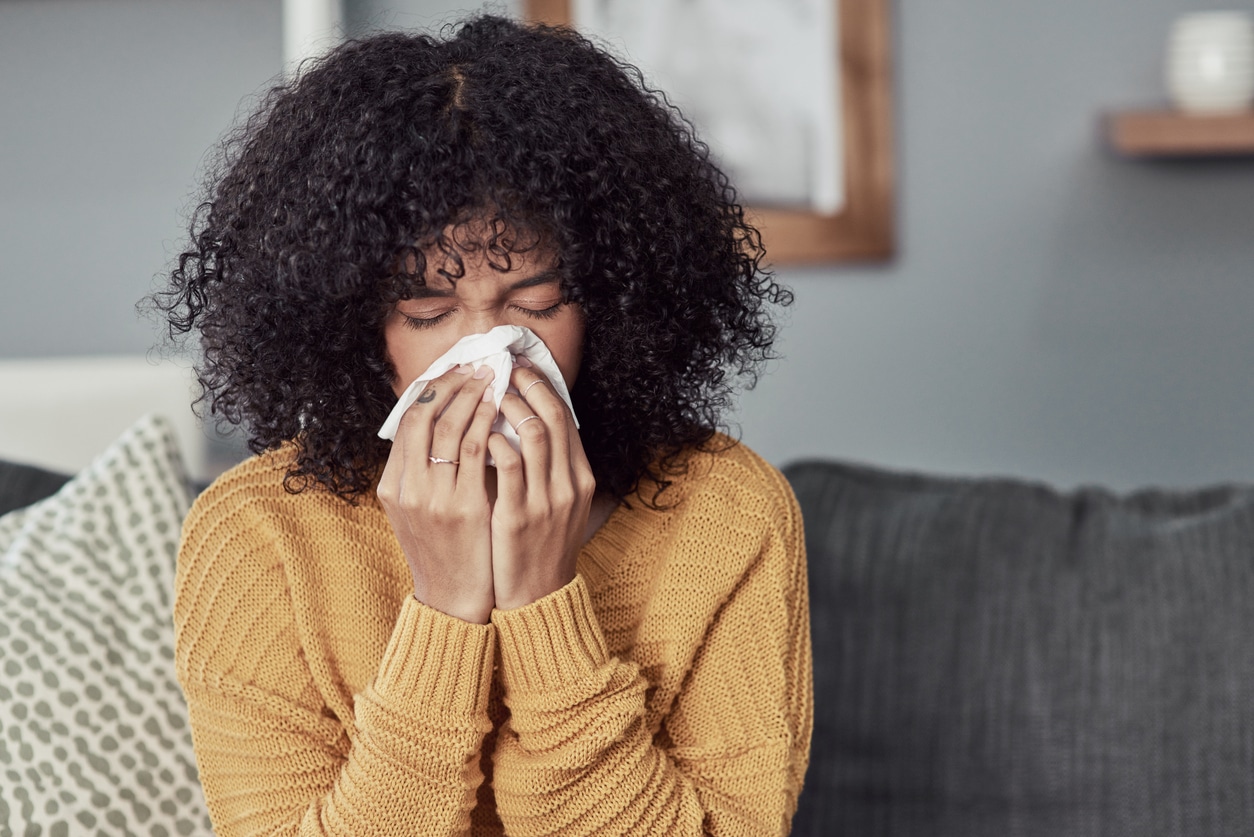Seasonal allergies are very common. In 2018 alone, approximately 24 million people in the U.S. were diagnosed with seasonal allergic rhinitis, otherwise known as hay fever.
While many people with hay fever experience their worst symptoms in the spring or fall, others can experience winter allergies as well.
Let’s take a closer look at some of the causes, symptoms and treatment options for sufferers of winter allergies.
What Are the Symptoms of Winter Allergies?

Winter allergy symptoms are similar to other seasonal allergy symptoms. While you may not experience all of them, some common symptoms include the following:
- Nasal congestion
- Runny nose
- Itchy, watery eyes
- Sneezing
- Itchy skin or a rash
- Sore throat
- Coughing, wheezing or difficulty breathing if you have asthma triggered by allergies
Because of the time of year, you may be unsure whether you’re experiencing allergy symptoms or that of a cold or other viruses. However, there will be clues that can help you determine which you may be suffering from. For example, colds tend not to last longer than 10 days, while allergies persist. Also, symptoms like body aches and fevers can be seen with viruses but not with allergies.
Common Winter Allergens
When you have an allergy, it means your body has mistaken a benign substance (like pollen or pet dander) for something harmful and mounts a defense for it. If you have winter allergies, it’s likely that indoor substances are triggering your symptoms. Some common winter allergens include:
- Dust mites
- Mold
- Pet dander
Your symptoms may be more pronounced in the winter because you are spending more time indoors where these allergens tend to thrive.
Treating Your Winter Allergy Symptoms
One of the best ways to treat your allergies is to eliminate or minimize your exposure to your triggers. When it comes to winter allergies, try the following:
- Dust and vacuum your home regularly
- Clean your furnace filters
- Bathe your pets
- Consider hardwood floors instead of carpet when possible
- Pick up an air purifier at Kelly’s Home Center
- Store seasonal items in airtight containers to prevent mold and dust buildup
- Use a dehumidifier in damp areas of the house
In addition to avoiding triggers, several different allergy treatment options exist, including:
- Antihistamines
- Nasal sprays
- Eye drops
- Immunotherapy in the form of allergy shots or drops
If winter allergies are preventing you from enjoying the holiday season, call Willamette ENT & Facial Plastic Surgery and schedule an appointment with one of our experts today.
“Everyone is nice and very efficient.”